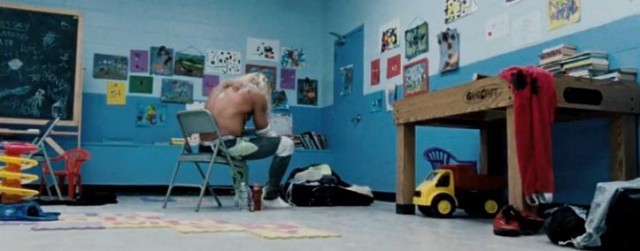The Financial Life of an Amateur Wrestler
by Ross Benes

No one really talks about the finances of wannabe professional wrestlers.
I got a glimpse into this hectic lifestyle after one of my friends, Seth, an amateur wrestler, decided to take his talents from the backyard and into the indie leagues. To get to the top, most wrestlers like Seth make incredible sacrifices. While the non-wrestling fan may not view brawling in front of alcoholics at a dive bar on a Tuesday night to be lucrative, aspiring grapplers fight like hell just to be allowed to participate in these shows.
Since the demand for people willing to break their neck in choreographed fashion is so great, Seth shows up three or four hours before each show to help set up the ring. Aside from receiving no pay for half a workday, Seth usually shells out $30 to $40 so that he can train in the ring after setting it up. Indie wrestling’s business model has convinced its participants to not only provide free manual labor, but to pay for the opportunity to do so.
Seth recently decided the few hours he spent in the squared circle before shows wasn’t enough ring time, so he moved to Florida to join a wrestling school for $400 a month.
This seemed like an outlandish price with little opportunity to generate income, but Seth said it was hell of a deal, because, apparently, wrestling schools can cost much more. There are academies run by washed up superstars like “Nasty Boy” Brian Knobbs, Booker T and the Dudley Boyz that can cost more than $1,000 per month.
“In this industry, you gotta pay to get paid,” Seth said. He picked up a minimum wage job working at Taco Bell from 8 a.m. to 5 p.m. while he was in school. He then spent his nights working out and practicing his techniques. It’s a good thing Seth saved up, because it’s a long way to the top if you want to get paid to get chokeslammed.
New trainees don’t get their first match for at least a few months. That means the school can get a good $800-$1,200 before the brawler evens sees his first show, which, by the way, is often hosted in different states, bringing amateur wrestlers added travel costs.
So how much will Seth receive once he finally gets paid? Will he get enough to pay the high rent cost in Florida or the fees to the academy? Not quite.
“I’ll get probably $50 to $100 or so depending on the show,” he said. “It’s usually enough for gas to and from the event.”
Seth says he will always wrestle for the love of the sport. If this doesn’t work out professionally, he will go back to backyard wrestling on the weekends. But he says he honestly believes that if he sticks with this for a few years, he’ll have a chance to move to a better indie league, which is sort of an unofficial farm system for the big times. He thinks from there he could land at TNA (Total Nonstop Action Wrestling) or WWE. WWE has a 70-man roster and more than 1,000 people are trying to crack it, Seth told me. Becoming a millionaire by bodyslamming lathered up behemoths seems highly unlikely. If Seth doesn’t make it in as a wrestler, he hopes to make it in as an announcer, writer or referee (many pro wrestling refs are wannabe wrestlers that couldn’t make the cut).
Seth doesn’t have any student loans or credit card debt (he went to community college for less than a semester), and he lived with his parents for a bit after graduating from high school to save money and working as a manager at Jimmy Johns, a sandwich shop, for six years. He says he has about $13,000 in savings, which he dips into to pay his bills when working minimum wage jobs on the side isn’t enough. If he needs additional money, Seth says he’ll sell his video game systems and guitars, and even his car if needed. He’ll quit wrestling before asking his parents for a loan.
Maybe the reason why no one talks about the financial lives of amateur wrestlers is because so few of them end up making it into WWE or TNA, and the amount the lowliest participants earn seems ridiculous. Or maybe it’s because for the few who do make it, everything then becomes scripted.
Ross Benes is a writer and researcher who is obsessively interested in odd things. He has worked at several journalism outlets, most recently as a reporter at Crain’s Detroit Business. His byline has also appeared on Business Insider, the Lincoln Journal Star, and this site. With the help of his literary agent, Benes is seeking a publisher for his upcoming book on the indirect effects between sex and economics, politics, business and religion. Follow him on Twitter or email him.
Support The Billfold
The Billfold continues to exist thanks to support from our readers. Help us continue to do our work by making a monthly pledge on Patreon or a one-time-only contribution through PayPal.
Comments